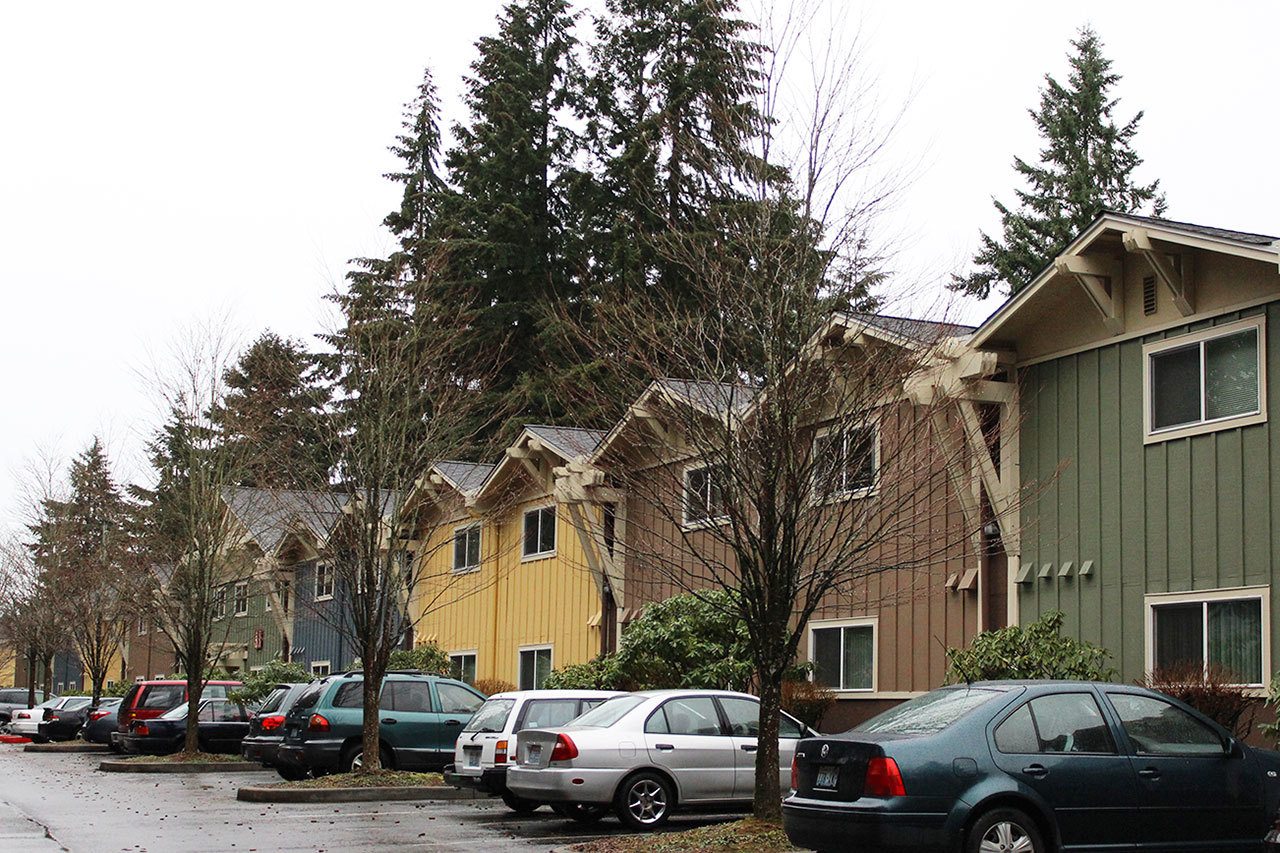Editor’s note: This is the final story in the Reporter’s series on Eastside homelessness.
Each year, thousands of low-income individuals go to the Housing Justice Project for help fighting apartment evictions. Most are facing homelessness if they lose their current housing, according to attorneys.
The justice project, staffed by volunteers and lawyers from the King County Bar Association, assists people or families living on double the federal poverty level threshold — roughly $22,000 to $28,000 annually for a household of one to four people.
Approximately 70 percent of the roughly 23,000 people who contacted the regional organization All Home last year for assistance were not mentally ill or drug abusers, according to director Mark Putnam. They had simply fallen on hard times and couldn’t pull themselves up.
A bad credit score, an eviction history or a criminal record can make finding an affordable apartment extremely difficult, according to lawyers and homeless nonprofit leaders. Even if they can find a landlord who will select them from a pool of potential tenants, safety deposits, rent and other upfront costs run in the thousands of dollars.
With skyrocketing housing prices and a growing population, the Puget Sound area’s low-income renters are at a disadvantage.
A few years ago, Bellevue resident Diana (who requested to be referred to by her first name for her safety) was evicted from her home of seven years. Most of the property managers she’s contacted have turned her away because of the eviction on her record. She now lives in her forest green minivan with her three dogs, who both help her keep warm at night and make her feel safe.
“I felt like I fell in a hole in the ground,” she said. “They need to give incentives to landlords to help us.”
Fighting an eviction notice — formally called an unlawful detainer lawsuit — can sometimes do as much harm to the renter as the eviction itself. Eviction papers written up by a landlord aren’t generally entered into court records. Once a tenant decides to fight the eviction, the lawsuit documents become accessible to landlords, tenant screening companies and any private citizen.
“What’s irritating about the eviction lawsuits is that, in a sense, you lose simply by fighting the case,” said Housing Justice Project attorney Jacob Wicks.
Inroads have been made in the last few years.
Under a new state law enacted in 2016, tenants can file for an “order for limited dissemination,” under which tenant screening companies are prohibited from presenting the eviction record in question to landlords.
Bellevue, Kirkland and Redmond have also passed ordinances in recent years banning landlords from discriminating against applicants using social security, Section 8 and other funds from subsidies towards their rent. King County and the cities of Seattle and Kent have also passed similar measures.
Last year, DESC — an organization that provides shelter, housing and servers for homeless adults in Seattle — expanded beyond serving those with mental health and addiction issues and launched a “rapid rehousing” program that places clients in market-rate apartments and creates an individualized approach to solve their housing issues. They have resorted to private, market-rate apartments because of the low affordable housing stock.
All Home has also had success placing clients in need in privately-owned apartment buildings through their Landlord Liaison Program.
In return for using alternative screening criteria for renters, landlords and property managers enrolled in the Landlord Liaison Program have access to a 24-hour hot-line and risk reduction funds they can use in case of damages that tenants cause.
Since the project’s creation in 2009, All Home has permanently placed 3,000 individuals or families in private apartments. Approximately 95 percent of the landlords that they’ve worked with continue to participate.
But that still leaves thousands of homeless people searching for housing options. All Home plans to build 9,500 units in King County over the next decade, but homelessness is growing rapidly. Nearly 70 percent of the people that sought their services in 2016 were newly homeless.
“Over the last few years, we’ve had a hard time because there’s just fewer units available. It’s really a landlord’s market,” Putnam said. “Homelessness itself is the tip of the iceberg of the affordable housing issue.”


